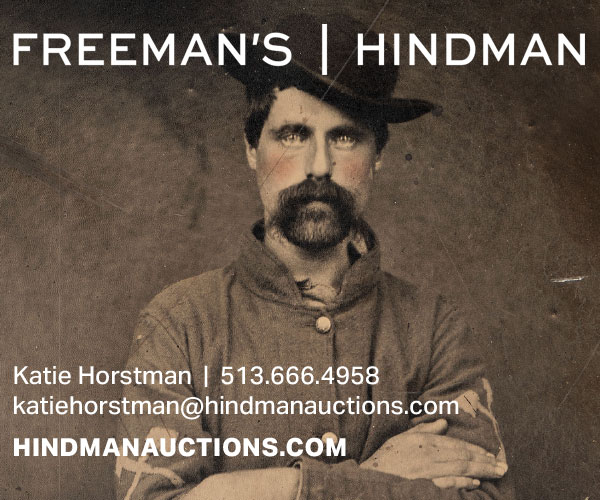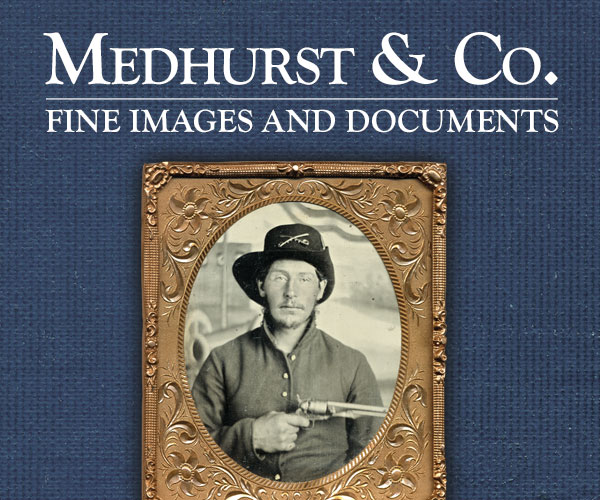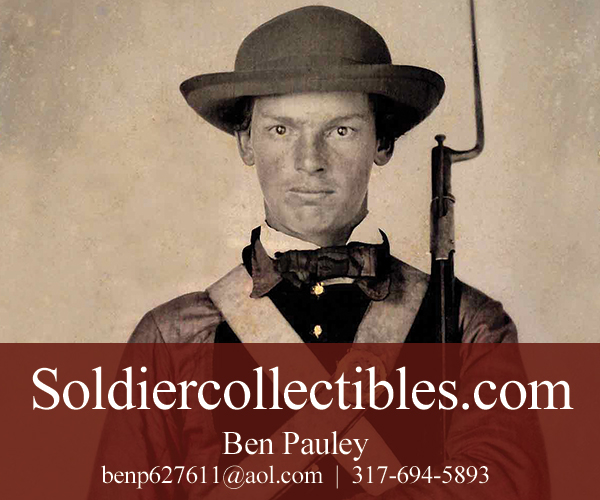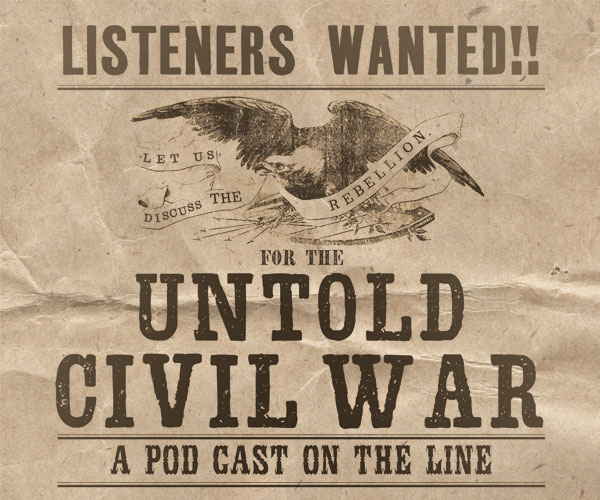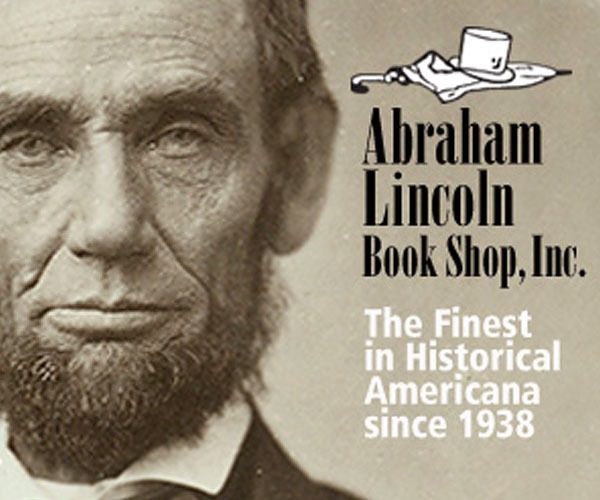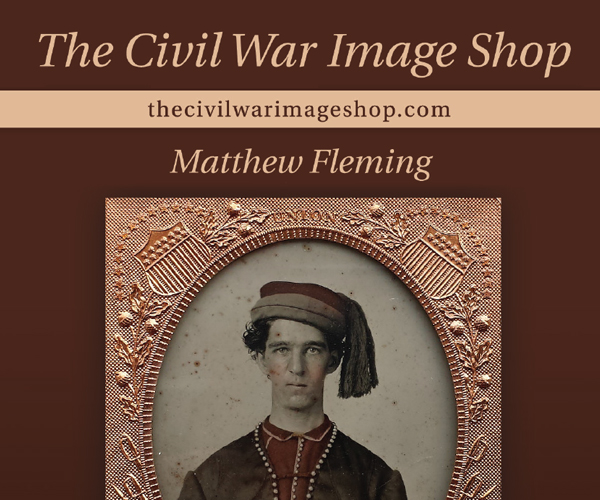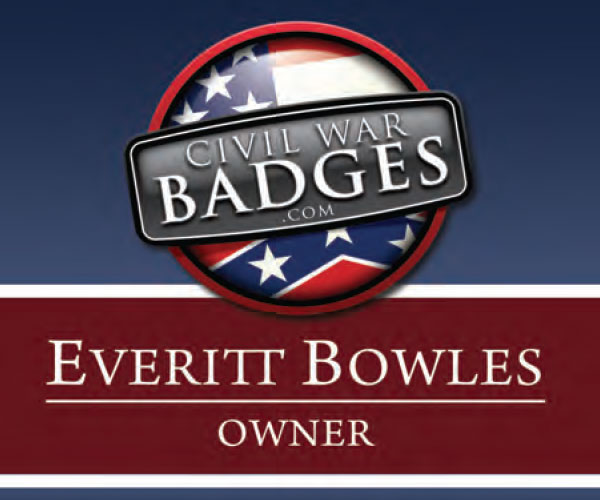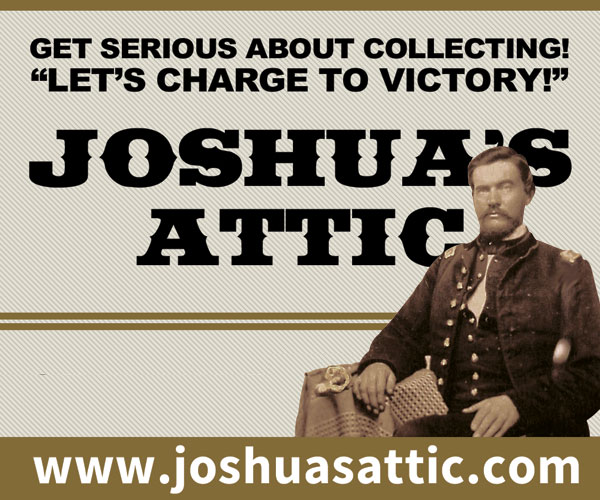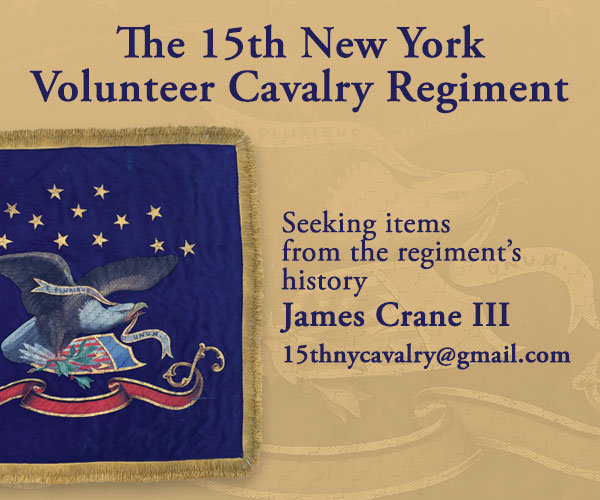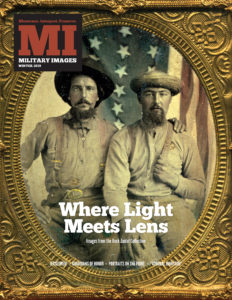 The complete issue
The complete issue
Vol. XXXVII, No. 1
(80 pages)
Print edition: Visit our store to check availability
Digital edition: Visit JSTOR.org to purchase
Subscribe to MI ($24.95)
Explore the MI Archives: Browse | Advanced search | Tutorial
Inside
Cover image
A sixth-plate tintype from the Buck Zaidel Collection pictures two Union pards fighting for each other and the flag.
Download (free)
Table of Contents (p. 1)
Download (free)
Editor’s Desk (p. 2)
The editor marks the magazine’s 40th year by placing the publication in context to key events in the modern history of collecting. Also noted is the passing of John R. Sickles, an icon in the collecting community and a former Senior Editor of MI.
Download (free)
Mail Call (pp. 3-4)
Feedback includes an example of uncommon placement of chevrons on the coat sleeve of a hospital steward, a question about a Texas identification and a request for more Confederate images.
Download (free)
Military Anthropologist (p. 4)
An analysis of the 19 loyal states that did not border the Confederacy shows seven exceeded their quotas for Union troops and the rest barely missed making their numbers.
Download (free)
Passing in Review (p. 6)
Gettysburg’s Coster Avenue: The Brickyard Fight and the Mural (Gettysburg Publishing LLC) by Mark H. Dunkelman is the story of how one man’s vision added an artistic masterpiece to a less-traveled section of the Gettysburg battlefield.
Download (free)
Photo Sleuth by Kurt Luther (pp. 8-9)
In “What to Do When Gold Standards Go Wrong,” Kurt revisits a column published in the Autumn 2016 issue after alert reader Doug Sagrillo presented him with an identified carte de visite that challenged another listed with a different name in a reputable public collection.
Antebellum Warriors (p. 10)
A quarter-plate ambrotype from the Dan Binder Collection is a portrait believed to be a militia staff officer sitting next to his feathered hat and a document.
Most Hallowed Ground (p. 12)
Pvt. George Washington Tucker survived the deadliest day in Vermont history—May 5, 1864. He and his fellow Vermonters suffered 1,234 casualties during the fighting in The Wilderness.
The Honored Few (p. 14)
Cecil Clay, a captain in the 58th Pennsylvania Infantry, was conspicuous for gallantry during the attack on Fort Harrison on Sept. 29, 1864. The fight cost him an arm, and resulted in his being awarded the Medal of Honor.
The Citizenry (p. 16)
A group of women stand on the back stairs of a clapboard building in Corning, N.Y. Several of them hold hats in various stages of completion, indicating that they are milliners.
Where Light Meets Lens: Representative images from the Buck Zaidel Collection (pp. 18-29)
Buck Zaidel is perhaps best known as the co-author of the book, Heroes for All Time: Connecticut Soldiers Tell Their Stories. He is also a savvy collector with a keen eye for unique images. Here we showcase selected images from his holdings.
Portraits on The Point: Representative photographs by the studio of Robert M. and James B. Linn by Dr. Anthony Hodges with images from his and other collections (pp. 31-42)
The rocky outcropping that overlooks Chattanooga, Tenn., became the scene of one the most dramatic moments of the Civil War after Union soldiers raised the Stars and Stripes in victory over Confederates on Nov. 25, 1863. Soon after, enterprising photographer Robert M. Linn set up a gallery and captured uncounted numbers of soldiers who visited the iconic spot. In this gallery, we showcase representative images from private collections. This is the second in a three-part series.
Jerseymen! A survey of Civil War soldiers and sailors from the John Kuhl collection (pp. 44-55)
The state of New Jersey’s contribution to Northern arms is evident in the faces and stories of volunteers who served in the Union armies during the Civil War. Original images are included here, many published here for the first time, along with their personal narratives.
New Jersey’s Splendid Colors Recall a Terrible Struggle (pp. 56-57)
An 1885 fire in the New Jersey state capitol building almost destroyed the precious colors carried by regiments during the late Civil War. The 19 men who saved the flags received badges of honor for heroism. One of them, William S. Stryker, accepted the badge with a moving speech.
Guardians of Honor: Men and events that shaped the Medal of Honor by Ron Maness (pp. 60-66)
Though the standard by which the Medal of Honor is substantially the same as it was during the Civil War, the process by which the awards are made is far more rigorous. Two stories here examine how the lack of validation impacted the decoration, and highlight the actions of two forgotten soldiers.
Captain Ramsey and the Birth of the “True Blues” by Ronald S. Coddington (pp. 68-70)
David Wardlaw Ramsey numbered among the first Alabama men to join the army in 1861. Those early, heady days of excitement soon gave way to pain, suffering and loss at Island No. 10, Port Hudson and elsewhere.
“Admiral Johnston”: An unofficial powder boy’s courage under fire by Ron Field (pp. 73-75)
Pint-size 6-year-old James Vincent Johnston could scarcely be kept out of harm’s way after he and his mother were trapped aboard the gunboat Forest Rose during a fight near Vicksburg, Miss., in early 1864. His father, the commander of the vessel, resorted to tying the boy to a chair in his cabin to keep him safe. It didn’t work. What happened next became the stuff of navy legend.
British Invasion! Confederate portraits in England by John O’Brien (pp. 76-77)
During the latter period of the war, a series of cartes de visite of Confederates, including President Jefferson Davis, Gen. Robert E. Lee and political and military leaders, was published in London by photographer Charles B. Walker in partnership with Florida lensman S.C. McIntyre. Long overlooked, we explore the history of this unique grouping.
Stragglers: Distinctive Images from MI contributors (pp. 78-79)
“Southern Warriors” features four images of Confederates.
The Last Shot (p. 80)
An eighth-plate tintype from the Michele Behan Collection is a portrait of a heavy artilleryman or an infantryman posed with a cannonball.


